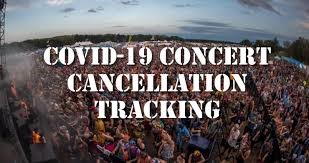Tourism Encounters a New Paradigm

Up to, and including the beginning of 2020, many professionals in the hotel, travel, and tourism industry would have agreed that “bigger is better.” Demand created a need to build larger cruise ships, more and differentiated hotels, additional stadiums and convention centers, faster and bigger aircraft. There appeared to be no ceiling and no blockades preventing continued expansion of the industry. People from all countries, regardless of income or employment, were encouraged to travel domestically and internationally, to visit friends, family, improve education, increase business, and experience an adventure. From passports to global entry card systems were designed to expedite the masses as they enthusiastically crowded airports and train stations. The endless stream of people moving from one event to another, from one city to another and from one continent to another brought tears of joy to industry leadership as bottom-line increases meant larger bonuses and job security.
What About Risks?
Risks for travel have always present, although not front and center. The plane could crash, the taxi might get hijacked in a remote part of a country, MERS and SARS and ZIKA raised health concerns, food poisoning and contaminated water made the possibility of travelers’ diarrhea a reality; however, none of the risks were stark enough or serious enough to stop or even diminish the quest for more expansive travel opportunities.
Trumped
Thanks for the cowardice of the Chinese and the World Health Organization (WHO) and the folly of the present occupier of the White House, COVID 19, a virus that could have been contained with limited global impact (think MERS, SARS and Zika) on world travel, has instead, become a pandemic, creating an overwhelming sense of danger, uncertainty and loss of control in populations around the world, placing health discussions at the very pinnacle of both public and private sectors agendas. Mr. Trump and his colleagues have created a disaster that has traumatized societies, with both short and long-term destructive outcomes. This pandemic is unique because it has impacted – not on one or two communities or countries, but rather, the entire planet, with an unknown end date.
Tourism and Nihilism

Worldwide leaders that had, in the past, supported each other, now compete for scarce resources, placing their own needs in front of the needs of others. The crises is further compounded for both individuals and societies because of the present dangers and the unknown future. The entire planet is dealing with a stark reality that offers little or no hope, feeble leadership (at best), governments that attempt to function and make decisions without the knowledge, and in many cases, tinted with a brush of nihilism.
The long-term consequences of COVID 19 are not clear; however, the immediate and short-term contraction of world economies, the absence of new opportunities on the horizon, combined with an ever-changing and expanding virus has laid bare the short-comings of societies throughout the world making attempts at normalcy appear futile.
An Explanation, Not an Answer
Because world resources have been and continue to be unprepared for the pandemic (including, but not limited to political, scientific, economic, governmental and public health) the immediate focus is on containing the spread of the virus – with a special concern for Mass Gatherings as these events are considered to present public health challenges that scientists and governments are unprepared or ill-prepared to address.
Historically, large events (politics, sports, religion, music, business) have been a source of infectious diseases that spread globally but did not reach the severity of COVID 19. What is unique about this disease is the scale of the problem. Previous epidemics have been addressed by world leaders through joint planning, enhancement of health infrastructures, and pre-emptive and preventive measures that have, in general, controlled infectious diseases on an international level.

Massive. Enormous. Gigantic
So Many People
Mass gatherings are described by the World Health Organization (WHO) as, “a planned or spontaneous event where the number of people attending could strain the planning and response resources of the community or country hosting the event.” The Center for Disease Control (CDC) acknowledges that COVID 19 is spread by respiratory droplets released when people talk, cough, sneeze, and shout. It is likely that the virus spreads to hands from contaminated surfaces and then enters through the nose, mouth, and eyes, causing infection. The only response, at this time, is through personal prevention such as handwashing, remaining away from others (at home), 6 feet of space between one person and another, and wearing a facial covering, combined with cleaning and disinfection of all surfaces.
Mass gatherings have triggered recent health emergencies of international notice including (but not limited to): the Vancouver 2010 Winter Olympics (H1N1 influenza)); the 2010 FIFA World Cup in South Africa (H1N1 influenza); the 2015 Africa Cup of National Football tournament in Equatorial Guinea (Ebola virus disease); the Rio 2016 Olympics (Zika virus); however, none have reached the seriousness and complexity of SARS CoV-2, reported from China in 2019-20 as a pathogen transmitted by the respiratory route leading to the COVID 19 pandemic.
Go or No Go

Because mass gatherings generate multiple revenue streams and create an enormous amount of publicity and enhance the public relations of the venue (the destination and participants), scheduled events prior to COVID 19 have been permitted. Venue organizers, as well as government security, public health, and safety consultants prepared for these events with supplies of vaccines, medications, medical professionals combined with mitigating systems and procedures based on experience. Unfortunately, the slow (pathetic) response of governments to the high probability of Covid19 contagion enabled the pandemic to spread unabated at an amazing speed.
It is clear that the sluggish recognition and late acknowledgment regarding the fact that mass gatherings create the perfect environment for virus spreading – has forced conventions, conferences, and meetings to Zoom and other online options.
Billions Lost
Mass events canceled or postponed include the London Marathon which usually generates more than 100-million pounds ($125m) for the UK economy. This was also a blow to billionaire Richard Branson who has sponsored the event through Virgin Money since 2010. Taylor Swift and Sir Paul McCartney were scheduled to perform at the UK’s largest outdoor music festival before it was canceled. The Glastonbury delivers 50-million pounds ($62m) a year in ticket sales alone (ticket fees are being refunded). Sales of on-site purchases, as well as local spending, would add an additional loss of 100- million pounds ($125m). Because the Glastonbury Festival donates approximately 1-million pounds ($1.24m) of its profits to local charities, these non-profits will now see a short-fall in their funds this year as a result of the cancellation.
Wimbledon, the world’s best-known tennis tournament anticipated losses of 200-pounds ($249.4 m) through ticket refunds, broadcasters and sponsors. The good news for this event is its insurance policy that included pandemics. The club is able to claim approximately 100-million pounds ($125m) in compensation reducing its losses. The British Lawn Tennis Association will also profit despite the cancellation as it will still receive its annual 40-million pounds ($50m) pay-out from Wimbledon.
London Fashion Week usually generates at least 269-million pounds ($333.8m) in profits for the city of London, including revenues to local hoteliers and restaurant owners as well as venues reserved for the shows, with additional company tax and money from retail shopping pumped into the economy by visitors. The event has pivoted online, and followers are still able to see their fashions, but the City of London loses the lavish spending habits of deep-pocketed attendees.
The Tokyo 2020 Olympics cost the country over $12.6 billion to produce while the cancellation added another $2.7 billion loss as the specially designed villages must be maintained, staff has to be paid, and many venues have to be rebooked.
Additional events canceled or postponed include the Union of European Football Associations Euro 2020 football championship; the Formula 1 Grand Prix in China; the Six National rugby championship in Italy and Ireland; Olympic boxing qualifying events; the Mobile World Congress in Barcelona and the Umrah in Saudi Arabia.
For smaller groups an annual event may be the only opportunity available to earn income, enabling revenue for another year of operation. The expenses incurred during the planning may never be recouped. Expenditures incurred include planning, performer and venue fees, and marketing materials that cannot be recovered. Larger events may have insurance to fall back on, but the smaller – community -based events are unlikely to have this opportunity.
Beyond Risk: Public Relations
In many cases, mass gatherings were canceled or moved online, not only in consideration of public health risks, but because of the visibility of these events through media interest and public/political participation and consumer expectations. If these events had been allowed to proceed on the world stage, clearly demonstrating the opportunities for spreading the disease on a global basis, the public response would have been fierce and unrelenting. So – out of fear, uncertainty, and the concern with failure, plus the available and growing data that demonstrates that these events are Petri dishes for the spread of the virus, it has been considered prudent to not produce these events – live – this year.
Not Deterred
What continues to confound the situation is that, in light of all the publicity, combined with statements from scientists, public health officials, business leaders, and community groups, people are still anxious to attend events, searching for opportunities that may be considered “underground,” and, in some instances, in spaces determined to be unsafe, even under the best of circumstances.
Thousands of fans packed a race track in South Dakota recently despite an increase in the number of documented coronavirus cases in the state. The Huset’s Speedway, closed for many years, was reopening and almost 9000 people crammed into the seats with almost no face masks. The outcome of the event? Health officials reported 88 new cases and one death.
The CDC reported that among 92 attendees at a rural Arkansas church during March 6-11, 35 (38 percent) developed laboratory-confirmed Covid 19 and three persons died. The highest attack rates were in persons 19-64 years (59 percent) and +/- 65 years (50 percent). An additional 26 cases linked to the church occurred in the community including one death.
In Skagit County, Washington, 45 members of a 60-person choir rehearsal became ill with COVID 19. None had shown symptoms before attending the rehearsal and there were no known cases in the county, although cases had been identified in nearby Seattle.
In Austin, Texas, 28 out of 70 students who booked a plane to Mexico for a spring break tested positive for the virus.

In Georgia, 200 mourners gathered to attend a funeral and dozens of relatives and attendees became will with the virus.
In New Rochelle, NY, at a 90th birthday party, the host tested positive as well as eight guests became ill, including the parents, and two attendees died.
Social Costs

Events play an important role in community life and attending festivals and mass events deliver benefits to the individual as well as the destination. Research has shown that attending festivals is related to a sense of emotional connection and the shared experience develops stronger and more resilient communities.
Social psychologist, Sonja Lyubomirsky, finds that it does not matter if you are introverted or extraverted, connecting with other people appears to contribute to the feeling of well-being. The psychology of attending large events enables the individual to cease being “solo” and permitted to assume a group-based social identification.
There is a normative shift: people change from acting in terms of their individual idiosyncratic beliefs and values to group-based beliefs and values, acting, “as if” they were a festival–goer or a fan. There is also a relational shift: people define themselves in terms of a social identity and see others as sharing the same social identity, making the relationships more intimate.
Some research shows that the group members also become more cooperative, respectful, trusting, supportive and helpful towards others and they begin to share a group identify permitting a comfort level of close physical proximity, making “crowding” acceptable. The sense of intimacy and support contributes to the intensely positive emotions that characterize many crowd events.
Shrink Wrapped
At the beginning stages of the pandemic the Center for Disease Control (CDC) warned against groups larger than 250 if there was no known community spread in a region. The number then shrunk to 50, quickly being reduced to a maximum of 10. Scientists and public health experts agree it would be best to isolate everyone; however, this is unrealistic and keeping groups small can reduce the number of uninfected people who come into contact with the virus.
Some government officials have heeded the science and the circles have been shrinking: no indoor dining, play date cancellations, avoidance of bars and social gatherings, working from home… all with the objective of avoiding other people.
No Complete Correct Answer
There is no magic number that is safe for gatherings, according to Samuel Scarpino, a complex systems scientist and infectious disease modeling expert from Northeastern University in Boston, MA. While keeping groups small is critical, there are other considerations including age, underlying health conditions, variations in how the virus behaves and social dynamics. The way people move in crowds can change how the virus passes through a group. In some situations, it is not the size of the group but rather how tightly the people are packed together and how much time they spend near each other in the crowd.
In a 2018 there was a study on movement through a London Underground with numbers on a diagnosed influenza-like illness collected by Public Health England. The rates of illnesses were higher in areas where the subway system was very busy, not because there were more people passing but they were passing more slowly, causing them to spend more time in the station and coming into closer contact with more people (think crowds spending hours crammed into US airports after screening rules went into place).
Tone Deaf Leadership

Covid 19 has delivered death, lingering illnesses, joblessness, newly impoverished families, homelessness, depression, and increased suicides to world populations, but nothing seems to move the needle when it comes to tone-deaf politicians and business leaders. No one, on the global landscape, appears to be up to the task of beating back Covid 19 and taking the reins that will lead to recovery, putting world economies back -together.
Women. Front and Center

In the USA, waiting in the wings, are potential world leaders, including Kamala Harris, Elizabeth Warren, Val Deming, and Tami Duckworth. In a time when the world is hungry for leadership, these women have been muzzled, unable to get the media coverage and financial support needed to bring their thoughts and ideas onto center stage. It is unfortunate for all of us, that their clarion call is not being heeded.
Bigger Can Be Better
We can hope, and pray, and get out the vote, so that – finally, in November 2020, new leadership will open a path to the future and we will, once again, be able to meet with friends for drinks and dinner, attend world expos, swim in hotel pools, shop at sample sales and mingle at museums. Mass gatherings are simultaneously the best worlds and the worst of worlds.

What is part of our present should not obliterate the importance of large events. What is necessary is a better understanding of the medical, social and psychology of conferences, conventions and concerts, in order to ensure that the balance is tipped from the worst to the best.
© Dr. Elinor Garely. This copyright article, including photos, may not be reproduced without written permission from the author.
WHAT TO TAKE AWAY FROM THIS ARTICLE:
- Thanks for the cowardice of the Chinese and the World Health Organization (WHO) and the folly of the present occupier of the White House, COVID 19, a virus that could have been contained with limited global impact (think MERS, SARS and Zika) on world travel, has instead, become a pandemic, creating an overwhelming sense of danger, uncertainty and loss of control in populations around the world, placing health discussions at the very pinnacle of both public and private sectors agendas.
- Because world resources have been and continue to be unprepared for the pandemic (including, but not limited to political, scientific, economic, governmental and public health) the immediate focus is on containing the spread of the virus – with a special concern for Mass Gatherings as these events are considered to present public health challenges that scientists and governments are unprepared or ill-prepared to address.
- The entire planet is dealing with a stark reality that offers little or no hope, feeble leadership (at best), governments that attempt to function and make decisions without the knowledge, and in many cases, tinted with a brush of nihilism.






















